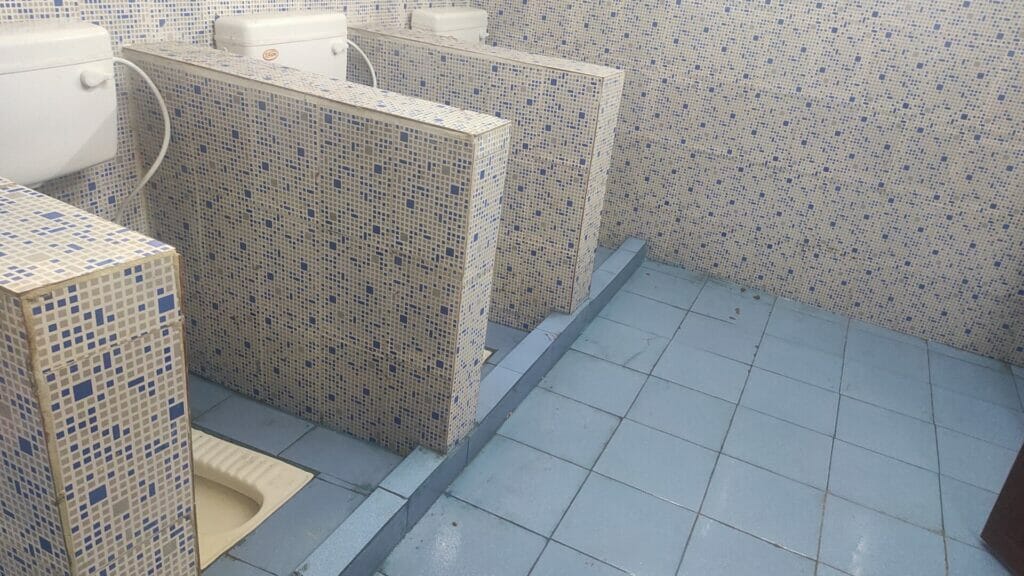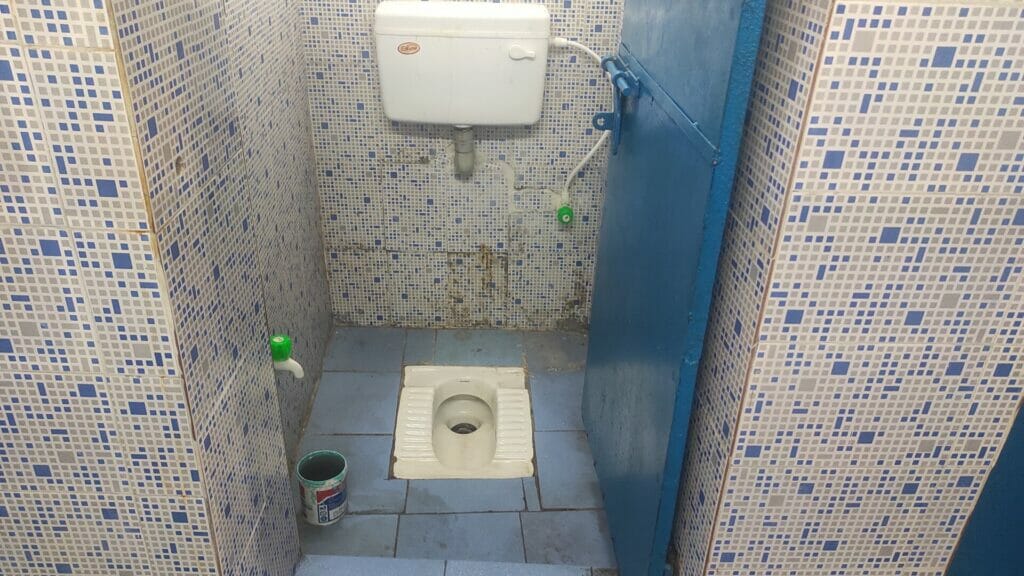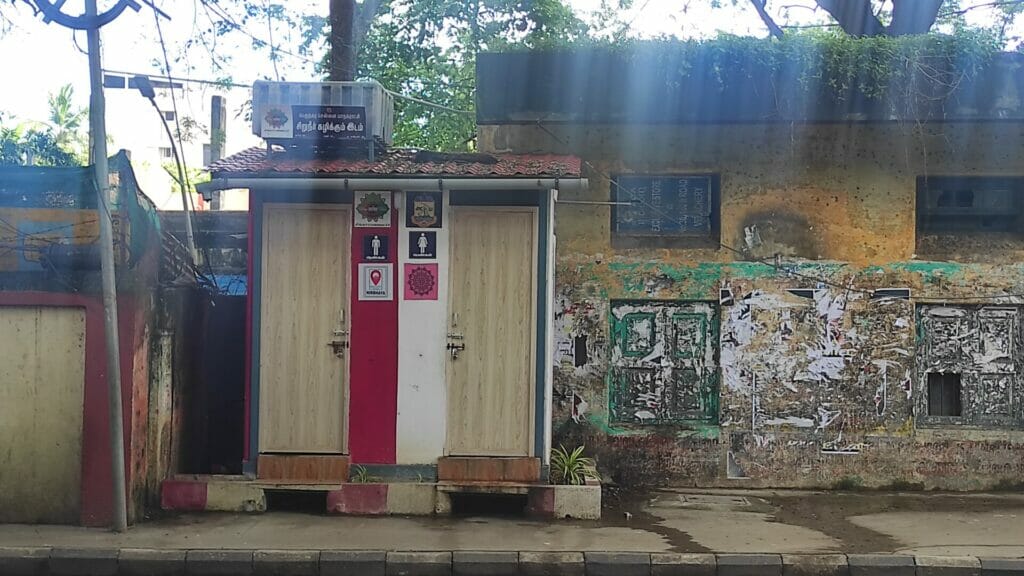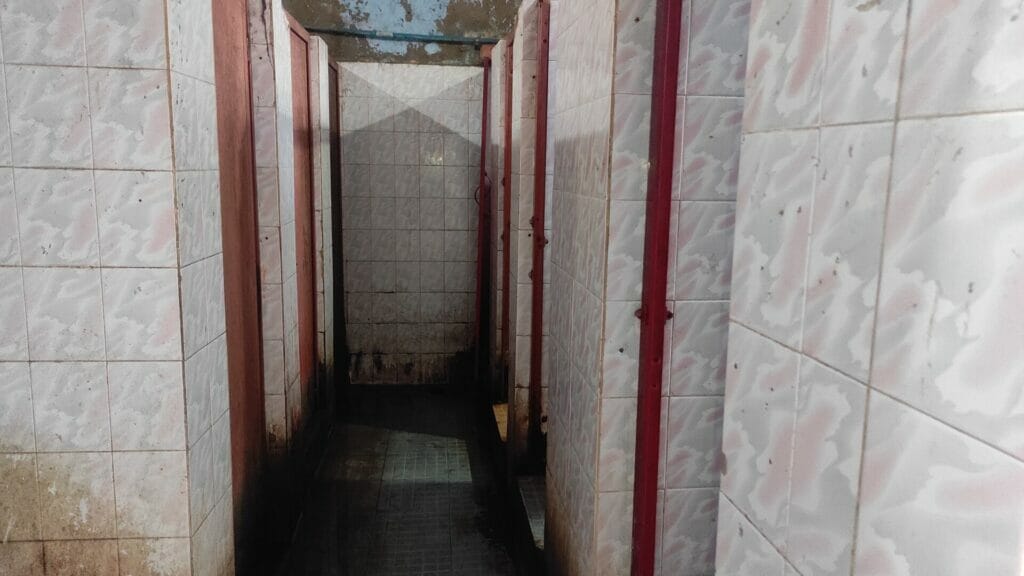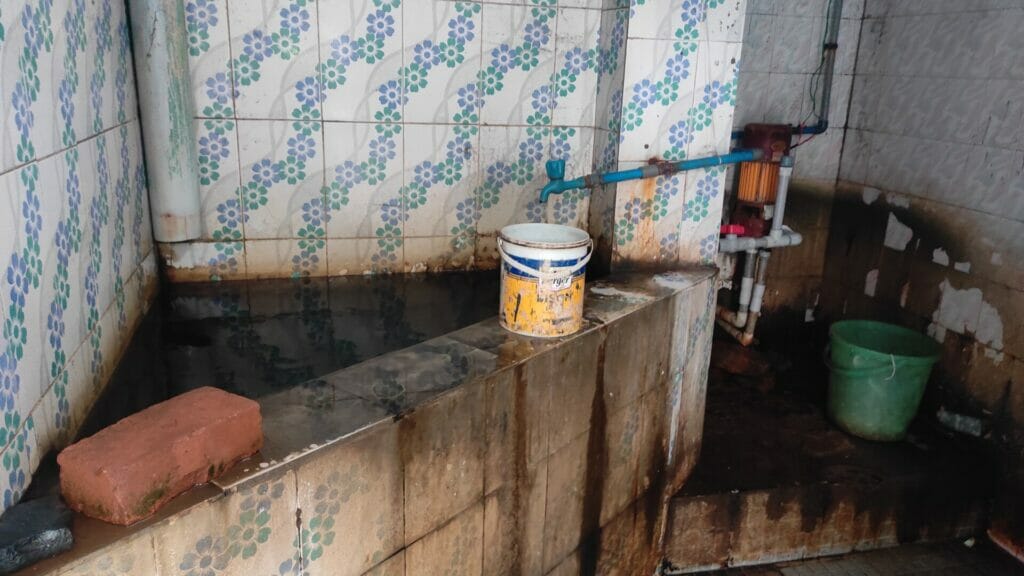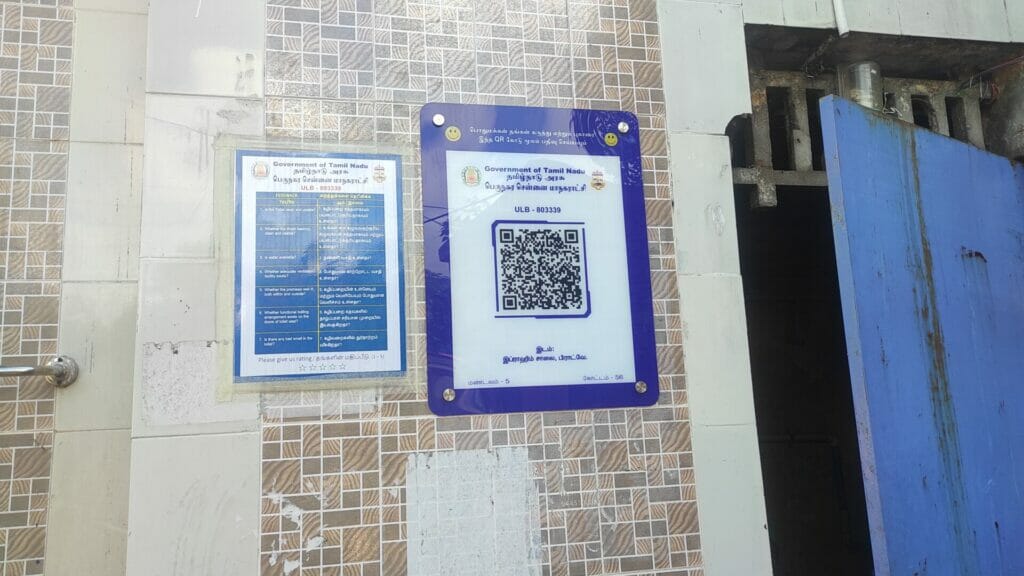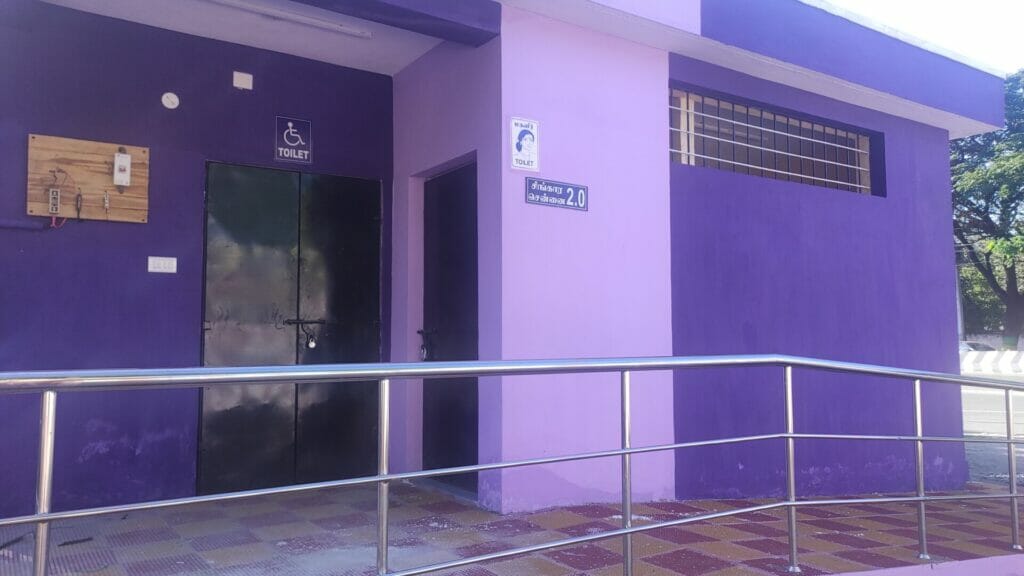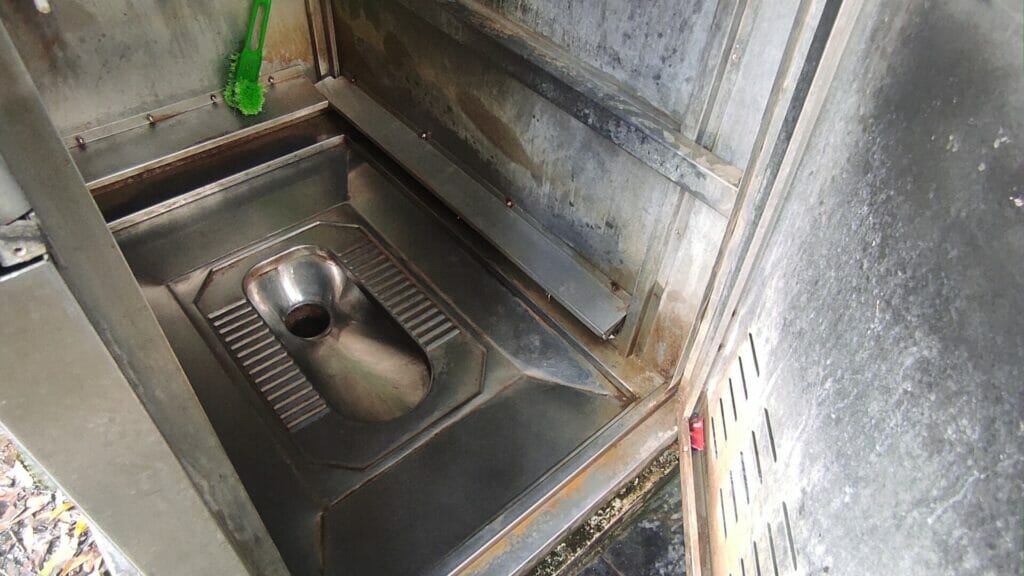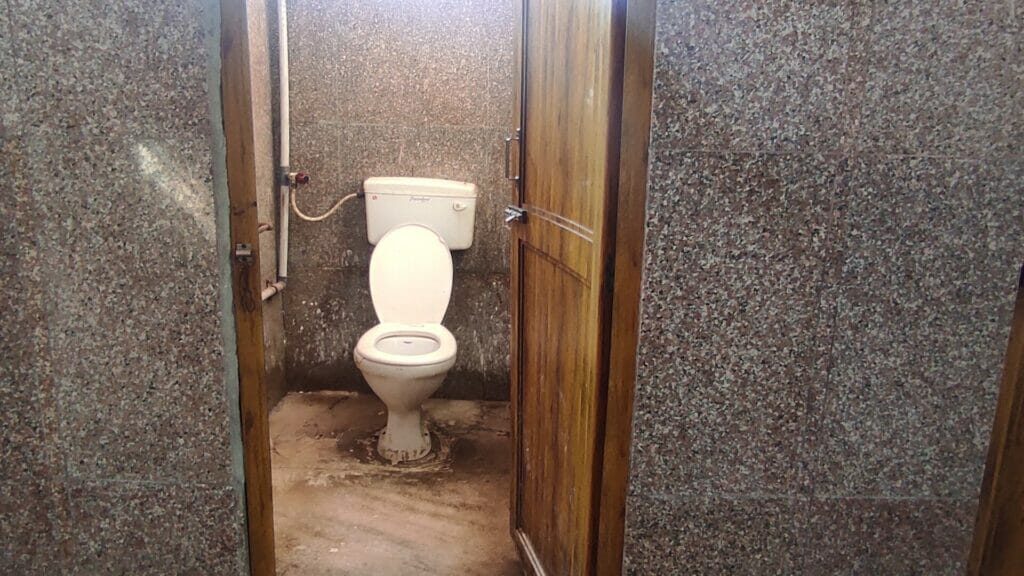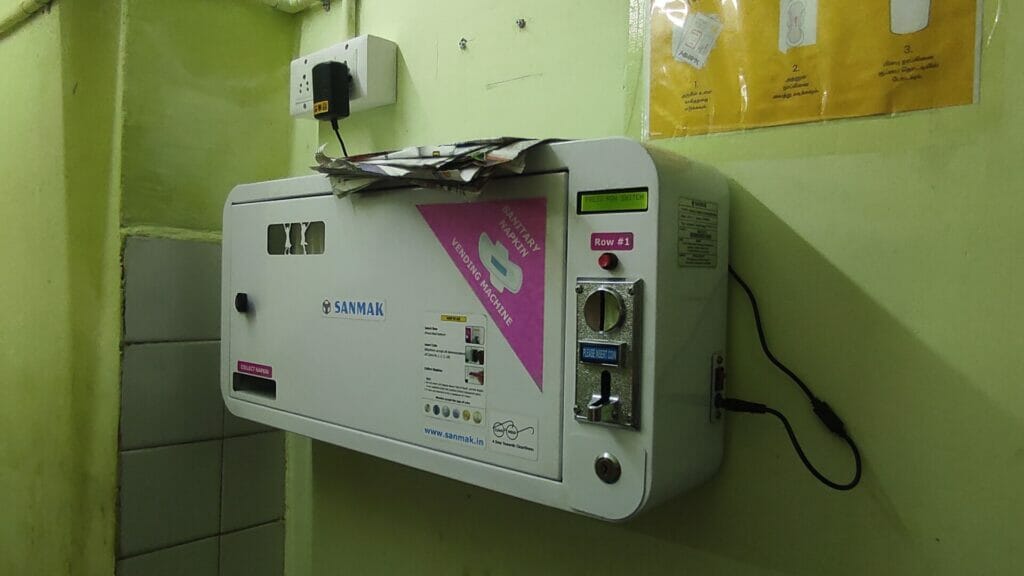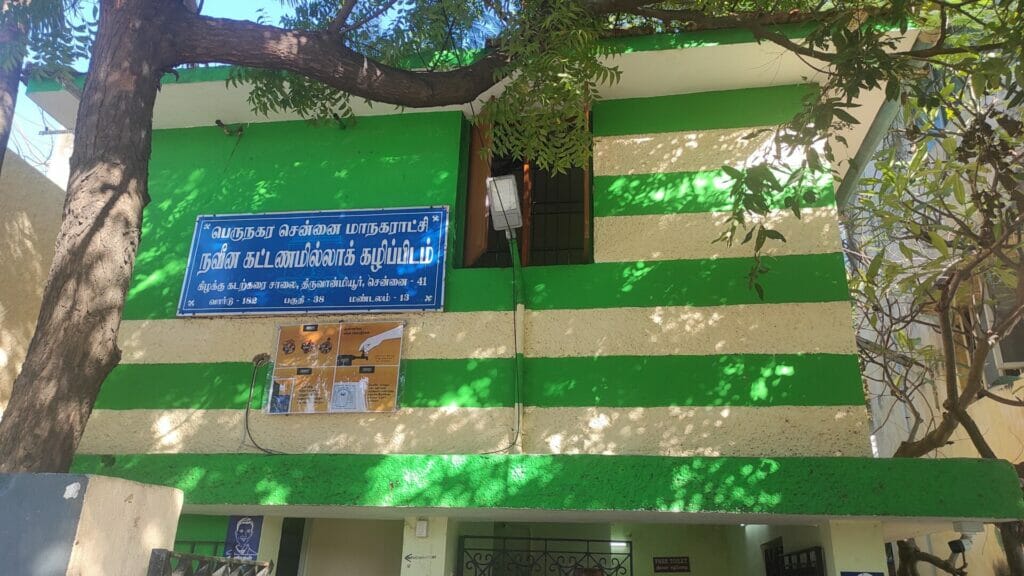In an interview with a traffic policewoman in Chennai, we asked her how she manages trips to the washroom when on traffic duty. She said that used the toilets in hospitals or educational institutions near the junction she was posted at, but did not mention public toilets.
The Greater Chennai Corporation has toilets in 943 locations with 7590 toilets, all free to use. There is a common notion among many that these toilets are not clean and fit for use.
We visited a few of Greater Chennai Corporation’s public and community toilets across Chennai in the last week of December to see if their maintenance or lack thereof matches the public perception.
How can people use these toilets in Chennai?
In a community toilet, opposite to the Chennai Metropolitan Water Supply and Sewerage Board, there were doorless toilets for children. These new toilets were inaugurated in December 2022 in North Chennai. Critics flagged that it could become dangerous for kids to use these doorless toilets, worried about their privacy.
“The irony is, our toilet is just opposite Metro Water’s office, and the water that comes out of the taps smells like sewage water. Around 700-800 people living in slums use this facility as they have no toilets. Sometimes vandals rip off the doors of the toilets which causes distress,” says the supervisor, Prema. The staff clean the toilets three times a day. The toilet was built as part of the Namakku Naame Thittam initiative.
Read more: Delayed reimbursements making Chennaiites wary of Namakku Naame Thittam
The urinal pictured above is on Vepery High Road. It has been constructed under the Nirbhaya Safe City Project and Singara Chennai 2.0. It remains locked. There are also no ramps in the toilet for the disabled to use. Moreover, the vicinity of the locked toilet reeked of urine.
This is the community toilet used by 128 families in Kannappar Thidal which houses around 700 people. “There are four toilets for women and six men’s toilets,” says G Selvam, a resident of Kannappar Thidal and caretaker of the toilet. Just behind the toilet, inside Kannappar Thidal, a man was bathing in the open.
On visiting the toilet near Kannappar Thidal, we saw stained walls and floors, and some cabins locked because of their unusable conditions. The foul smell and sight indicated the risk of health hazards. Stagnant water in a tank can lead to mosquitoes that cause dengue to breed.
Read more: Kannappar Thidal: Where residents continue their 20-year wait for a proper home
In a public toilet on Broadway, a QR code was pasted for users to record their feedback. This toilet had a ceiling with beams, with a partially open sky. When it rains, the toilet could become slippery and unusable. This toilet did not have any staff member manning it during our visit.
We came across another unopened toilet under the Nirbhaya Safe City Project and Singara Chennai 2.0 on Sardar Patel Road. Although it had a ramp and a separate bathroom for the disabled, it was locked.
Jeeva Park in T Nagar has an e-toilet which did not have a tap. People have to carry water from a large open container.
A few toilets better maintained than others in Chennai
Although there is a lot of tourist footfall in this public toilet opposite Marina Beach, the toilet did not look unsanitary. The toilet is maintained by private contractors and the staff cleans the premises every hour. “Even though there is a dustbin allotted for disposing of sanitary napkins, people seem to dump them inside the toilets, which we have to clean. Moreover, there is no facility here for taking bath, but many tourists take bath and making the toilet slippery. We advise them to not take bath, but they pay no heed,” says one of the maintenance staff at the toilet.
At Rs. 5, a person can get a sanitary napkin from the napkin-vending machine in a public toilet opposite the Thiruvanmiyur market. “It was opened a few months back. We clean every 30 minutes and get a footfall of around 900-1000 people every day,” says a maintenance staff member. The toilet is run by private contractors.
The previously mentioned toilet also has a set of instructions pasted on the wall of the toilet by the Tamil Nadu Urban Sanitation Support Programme (TNUSSP). TNUSSP is a technical support unit of the State Municipal Administration and Water Supply department which has taken up some toilets for refurbishment in Chennai. “This is one of the cleanest toilets in South Chennai. I wish they go a step beyond and put an air freshener in the toilet. Sometimes, even if the toilets are clean, we can smell the cleaning liquid that is being used,” says Valli, a person who used the toilet.
Many public toilets continue to remain unusable despite there being a pressing need for improved sanitation facilities across the city. The lack of proper sanitation facilities is a public health issue that Chennai must work to rectify on priority.
